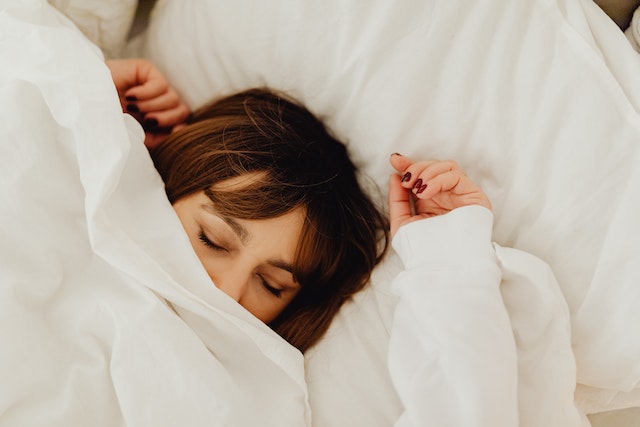Are you having trouble falling asleep at night? Don’t worry! We’ve got you covered.
Many of us just don’t get enough sleep and suffer from insomnia. Whether it is due to stress, long work hours, or bad habits like scrolling on mobile phones for hours, we must learn how to sleep better. Fortunately, Sweet Island Dreams has the answer to all your questions and has some tips for identifying the issue and getting better sleep.
Although you can do several things to improve your sleep, if you still struggle to sleep well, don’t hesitate to reach out for help from a medical professional. In this article, we’ll share five science-backed tips so that you can get more restful sleep in no time.
Science-Backed Tips For A Fulfilling Sleep
From setting a regular sleep schedule to reducing stress before bedtime, these tips will make a difference in your sleep health.
1. Establish A Regular Sleep Schedule
Establishing a regular sleeping schedule helps regulate your body’s natural sleep-wake cycle. When you have a regular sleep schedule, your body knows when it’s time to wind down for the night and when it’s time to wake up. You may feel more rested and less dizzy during the day.
You can start by going to bed and waking up daily at the same time, even on weekends, to establish a regular sleep schedule. Once you have been doing this for a while, you can slowly adjust your bedtime or wake time. Make sure you stick to your new plan as much as possible so your body gets used to it.
2. Keep A Warm And Comfortable Environment In The Bedroom
A comfortable environment is perfect for a good night’s sleep. But what actually does that mean, and how can you ensure your bedroom is the perfect temperature for sleep?
People who sleep in a warm and comfortable environment are likelier to be active and fresh during the day. Depending on the season and your preferences, the temperature of the room should be comfortable for you.
3. Limit Nighttime Exposure To Bright Light
Exposure to bright light can suppress the production of melatonin, the hormone that makes us feel sleepy. So if you’re having trouble sleeping, limiting your exposure to bright light in the evening is essential.
Avoid using electronic devices like computers and smartphones for at least an hour before bedtime. The blue light emitted by these devices is incredibly disruptive to sleep.
If you need to be in a bright room in the evening, try wearing dimming glasses. And when it’s time for bed, make sure your bedroom is as dark as possible.

4. Warm Up Your Feet
Warming up your feet will help relax your muscles and prepare your body for sleep. Take a hot bath or shower to relax your feet. You can also massage your feet with a heating pad or warm towel and wear socks to bed. This will increase blood flow, reduce tension, keep them warm and prevent them from getting cold at night.
5. Practice Relaxation Techniques Before Bedtime
Which relaxation technique is correct for you? And how do you make sure that you’re doing it in the correct way?
If you’re having trouble sleeping, try practicing relaxation techniques before bedtime. You can try various techniques, and it may require some experimentation to find the best one. Some popular options include:
- Progressive muscle relaxation – This involves tensing and relaxing different muscle groups in your body, beginning with your toes and moving up to your head.
- Deep breathing – Take deep, slow breaths through your nose and out through your mouth. Focus on filling your stomach with air rather than taking shallow breaths into your chest.
- Visualization – Imagine a calm, relaxing scene in your mind. Focus on the details of what you see, feel, and hear in this place.

Conclusion
Millions of people struggle with insomnia every year. But there are things you can work on to sleep better.
With these science-backed tips, you will be equipped with reliable methods for getting a great night’s rest, from finding the right mattress to ensuring that your room temperature is suitable for optimal sleeping conditions.
Achieving those coveted 8 hours of uninterrupted sleep might be as simple as incorporating these strategies into your regular nightly routine.
FAQs
Is there a diet that can help you sleep better?
Eating a balanced diet with plenty of fruits and vegetables, reducing caffeine intake, and avoiding large meals late at night are all helpful steps toward better sleeping habits. Additionally, incorporating foods such as chamomile tea or nuts into your evening routine may also prove beneficial in helping you get a good night’s rest.
How do you sleep comfortably without thinking about it?
Although it can be challenging, it is possible, with the right attitude and approach to find ways to sleep soundly without disturbing thoughts. Relaxation techniques, such as deep breathing or visualization, can help reduce stress and make it easier to fall asleep.
What are the top things I should not do before going to bed?
By avoiding using electronic devices, eating large meals, or drinking too much fluid, you can ensure that you get the restful sleep your body needs. Taking the time to relax and wind down with calming music or a warm bath will help you fall asleep faster and improve the quality of your sleep overall.


































